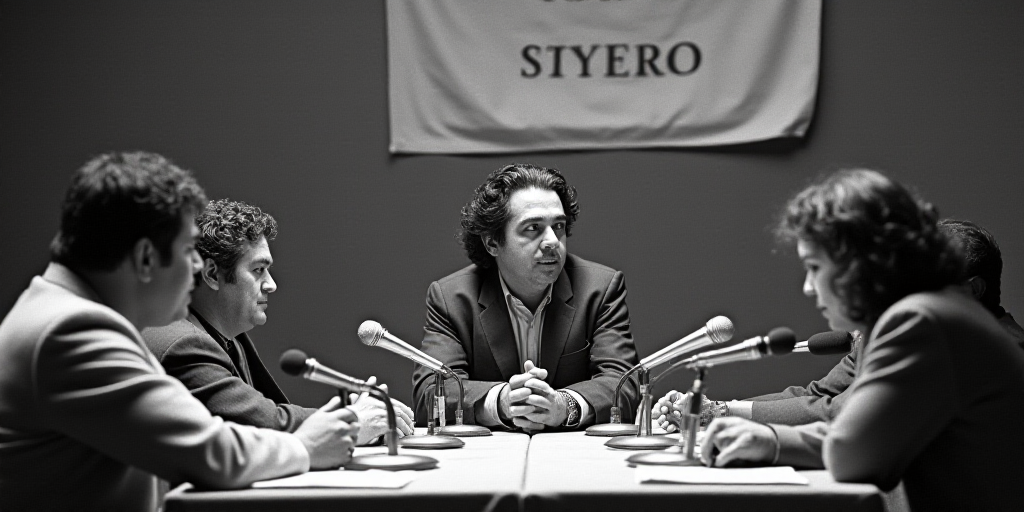Introduction
The Mexican Secretariat of Labor and Social Prevision (STPS) recently concluded a series of six forums to analyze the reduction of the standard 40-hour workweek. The discussions gathered proposals from business chambers, unions, academics, and international organizations.
The Nature of the Discussion
Quia Chávez Domínguez, Subsecretary of Employment and Productivity at STPS, emphasized that the discussion is not about implementing a pre-existing initiative but rather constructing one through dialogue. Marath Bolaños, head of STPS, consistently stressed that the resulting project would be built through dialogue.
Key Consensus and Divergent Points
In general, the forums reached a consensus on advancing the 40-hour workweek implementation, with varying opinions on the “how” and some resistance. All sectors expressed support for reducing work hours, accompanied by transition measures.
Proposals Presented in STPS Forums
- Graduality: All sectors agreed on a gradual transition to the 40-hour workweek, though no consensus has been reached on the timeline. Business organizations suggested reducing work hours by one hour annually, implying an eight-year transition, while unions insisted on applying the new scheme no later than 2027.
- Flexibility and Sectorization: Flexibility in applying the norm, such as weekly or monthly hour computation and the introduction of hour banks. There were also requests for sector-specific, activity-specific, and regional rules.
- Evaluation and Monitoring: Both unions and business organizations proposed creating a committee or organ to monitor and evaluate the implementation. This also included suggestions for pilot programs.
- Sabatinal Premium: Unions proposed a sabatinal premium, a new benefit to compensate for working on Saturdays. According to the proposals by business associations, this day would be considered a rest day.
- Overtime Regulation: Business sectors requested modifications to overtime regulations, including eliminating income tax from overtime pay and removing overtime hour limits.
- Deductibility of Benefits: Some unions and business sectors agreed on 100% deductibility of benefits. Certain business stances also suggested eliminating the payroll tax.
- Adjustment of Sunday Premium: A proposal was made to convert the Sunday premium into a benefit given only when working on a regular day of rest, regardless of whether it’s Sunday or not.
- Training Programs: To address the shortage of skilled labor in some sectors, training programs were suggested to accompany the reduced workweek and improve productivity.
- Reform of the Federal Labor Law: Experts recommended only amending the Federal Labor Law to allow distributing 40 weekly hours across six days, ensuring regulatory flexibility and facilitating adjustments if needed. Unions, however, advocated for a constitutional reform recognizing the right to two days of rest for every five workdays.
- Support for SMEs: Primarily through tax incentives and technical advice to transition to the 40-hour workweek. There were also requests for sector-specific rules.
- Salary Protection: Unions emphasized including salary protection in the workweek reduction, ensuring no income loss.
- New Work Models: Businesses also discussed regulating new work models, such as outcome-based work, improved hourly payment rules, and flexible hiring.
- Formalization: Given that half of the workforce is employed informally, formalizing employment was suggested as part of the reform.
- Benefits for Compliant Companies: Some business organizations requested tax incentives and preferential rates for companies adhering to the reduced workweek.
- Anti-Trafficking Law Reform: Proposals were made to reform the anti-trafficking legislation, recognizing excessive overtime as labor exploitation.
- Tripartite Social Dialogue: Maintaining tripartite dialogue was frequently proposed, even after the initiative’s presentation, ensuring continuous communication until implementation.
40-Hour Workweek: Not a One-Size-Fits-All Solution
Quia Chávez Domínguez, STPS subsecretary, stated that the 40-hour workweek is not a one-size-fits-all solution and that Latin American experiences can provide valuable insights for Mexico. She highlighted the commitment of all sectors to find a feasible implementation method.
Marath Bolaños, STPS head, assured that all forum conclusions will be public and respected in the final project, emphasizing it would be a consensus-based initiative.






